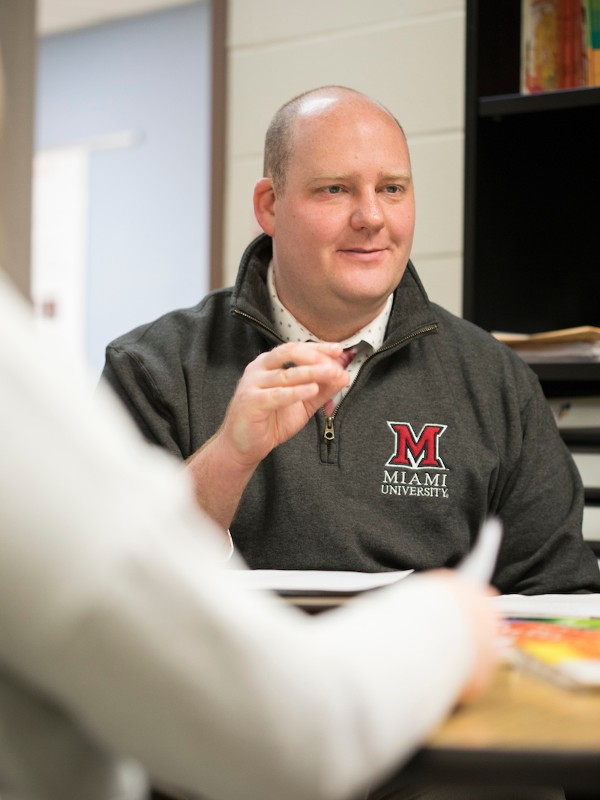Arnold Olszewski
My Approach to Teaching and Learning
In the digital age, information is readily available at our fingertips. That is why my teaching aims to make students critical consumers of research. Anyone can use the internet to look up information, but critical thinking will help students evaluate and apply that information effectively. In my teaching and research, I strive to provide students with the tools and skills necessary to critically examine information, synthesize it with their existing worldview, and apply it across clinical and educational settings of speech-language pathology and audiology.
Students in my classes and research lab read newly published research on how young children learn to read. Using inquiry-based learning, we examine what types of children might benefit from these instructional methods and who might still need extra supports. Students create innovative solutions using a mixture of traditional analog approaches and modern technologies to teach children from various backgrounds and communities how to read effectively.
My aim is to make learning intrinsically rewarding – rather than focusing on earning a high grade, I want students to feel the accomplishment of developing a successful treatment plan. Students in my classes are encouraged to explore their own interests and apply classroom skills to their own clinical challenges. I also teach students that mistakes are a natural part of the learning process – they are how we grow!
My Teacher-Scholar Journey
Learning is at the heart of what I do. As a speech-language pathologist, my goal is to help children learn speech and language structures. As an instructor, my goal is to help future speech-language pathologists learn to develop appropriate assessment and intervention plans using evidence-based methods. As a researcher, my goal is to work with students to develop, evaluate, and revise techniques for teaching early literacy skills such as phonological awareness, alphabet knowledge, and functional vocabulary to preschool-age children.
In each of these settings, there is so much variability when it comes to learning. A treatment plan that works for one child with a language disorder may not be effective for another. Some college students may struggle with a particular classroom assignment where other students flourish. Research might show strong results for most participants but not all. I enjoy working in those exceptions. I aim to scaffold and diversify my instruction so all students have opportunities to acquire the knowledge and skills necessary for success. I also work with students to use data-based decision-making and creative problem-solving to help children who are struggling to learn early language and literacy skills. Using observational methods such as single-case experimental design, along with physiological measures such as pupillometric eye tracking, we are able to better understand individual challenges that children face in their acquisition of literacy. These research opportunities also help students see the variability in learning and understand how there is often more than one way to acquire a skill!
Knowledge is Power
“What I love about Miami is the strong emphasis on both teaching and research. Many schools prioritize one over the other, but I believe these go hand-in-hand. My favorite thing is getting a student who is scared of research to develop their own project and see the excitement they feel when they get their results.”
Education
Ph.D. University of South Florida
M.S. Purdue University
B.S. The Ohio State University
More About Me
Since coming to Miami five years ago, I have published 16 manuscripts — five with student co-authors — and made 23 national presentations — 16 with student co-presenters. The research in my lab focuses on developing and evaluating feasible and effective early literacy instruction for young children.
